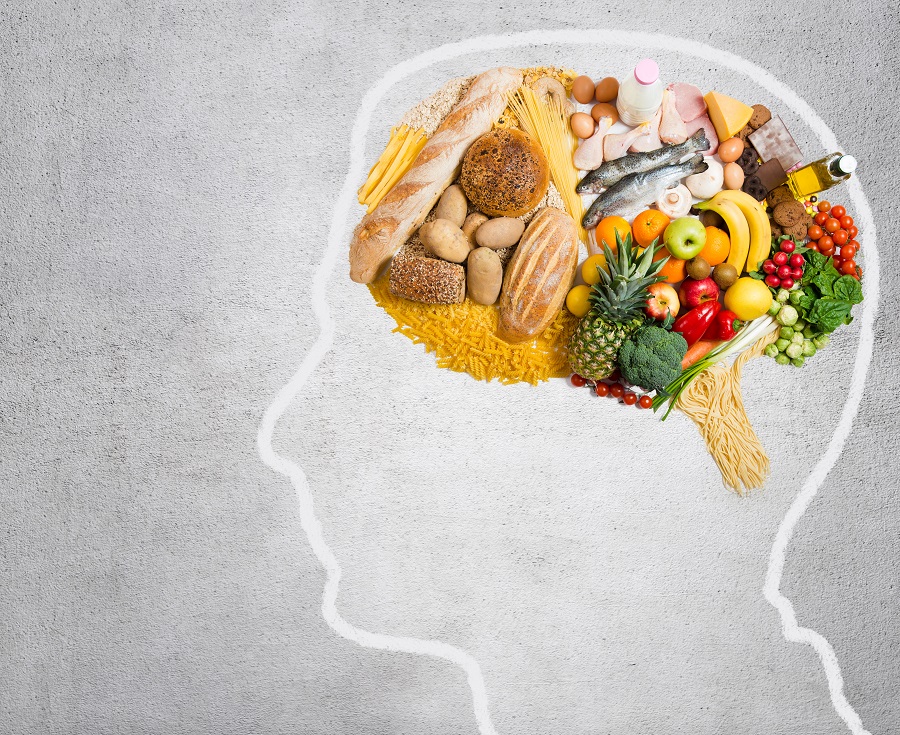
Best Nutrients for Brain Health and Memory
The average human brain weighs 3 pounds and is about 2% of your total body weight, but it uses more of the calories you consume — up to 20% — than any other organ in your body. Because you literally are what you eat, a brain-boosting diet can help improve your brain function. That’s why it’s important to maintain a healthy diet that supports brain health with the best nutrients for memory.
8 Nutrients that Could Help Cognitive Function
Omega-3 fatty acids: One of the best nutrients for memory, omega-3s can help with general thinking, thought processing, remembering and learning. They may help prevent Alzheimer’s disease and dementia. Omega-3s help build membranes around each cell in the body and can even improve the structure of brain cells called neurons. High levels of omega-3s can be found in:
- Salmon
- Mackerel
- Tuna
- Herring
- Sardines
You can also get omega-3s from:
- Soybeans
- Walnuts
- Flaxseed
- Chia seeds
- Eggs
- Avocados
Unsaturated fat: High blood pressure is linked with cognitive decline, but eating monounsaturated fats may reduce blood pressure. Sources of healthful unsaturated fats include:
- Avocados
- Almonds, cashews and peanuts
- Flaxseed and chia seeds
- Soybean, sunflower and canola oils
- Walnuts and Brazil nuts
- Fish
Antioxidants: The brain is highly susceptible to oxidative stress, which contributes to age-related cognitive decline and brain diseases. That’s why antioxidants are important for brain health. Antioxidants you should be looking for include:
- Flavonoids: Dark chocolate with at least 70% cocoa contains cacao and a type of antioxidant called flavonoids. These may encourage neuron and blood vessel growth in parts of the brain involved in memory and learning.
- Anthocyanin, caffeic acid, catechin and quercetin: These antioxidants are typically found in berries and may reduce inflammation and oxidative stress. Types of antioxidant-rich berries include:
- Strawberries
- Blackberries
- Blueberries
- Blackcurrants
- Mulberries
- Polyphenols: A group of antioxidants called polyphenols could provide a reduced risk of dementia and improved cognitive abilities in regular aging processes. Foods made from soybeans are rich in these antioxidants.
- Resveratrol: This natural nonflavonoid antioxidant can have protective effects that could possibly help to prevent cancers, inflammation and neurological diseases, including Alzheimer’s and Parkinson’s. Rich sources of resveratrol include:
- Peanuts
- Mulberries
- Rhubarb
- Lycopene: Another antioxidant that could protect against dementia, especially Alzheimer’s disease, is lycopene. It can be found in:
- Red fruits
- Tomatoes
- Watermelon
- Bell peppers
- Red carrots
- Vitamin E: This important antioxidant can prevent or decelerate cognitive decline and boost memory as the brain ages. It may also contribute to improved cognition and reduced risk of Alzheimer’s disease. Nuts and seeds with the highest amounts of vitamin E include:
- Sunflower seeds
- Almonds
- Hazelnuts
- Peanuts
Whole grains are another good source of vitamin E, including:
- Brown rice
- Barley
- Bulgur wheat
- Oatmeal
- Whole-grain bread
- Whole-grain pasta
- Glucosinolates: When the body breaks down compounds called glucosinolates, they produce the antioxidant isothiocyanates. It may reduce oxidative stress and lower the risk of neurodegenerative diseases. Vegetables that contain glucosinolates include:
- Brussels sprouts
- Bok choy
- Cabbage
- Cauliflower
- Turnips
- Kale
- Broccoli
Choline: This essential nutrient works as the brain’s messenger, maintaining communication between brain cells and muscles. It also helps to reduce inflammation and is critical for memory. Good sources for choline include:
- Meat
- Fish
- Eggs
- Brussels sprouts
- Broccoli
- Cauliflower
- Lima beans
- Wheat germ
B vitamins: Mood and mental performance is heavily influenced by your intake of B vitamins. It could also help lower your chances of developing dementia because it assists memory ability.
Eggs are a good source of vitamin B-6, vitamin B-12 and folic acid.
Vitamin K: This brain-boosting nutrient helps enhance cognitive function and verbal memory, and may also help prevent Alzheimer’s. Sources of vitamin K include:
- Broccoli
- Leafy greens like kale, arugula, spinach and collard greens
- Basil
- Chili powder
Zinc: This nutrient is vital for enhancing memory and thinking ability. Zinc can be found in:
- Pumpkin seeds
- Dark chocolate
- Potatoes
- Lamb
- Seafood
Caffeine: Lifelong coffee consumption could reduce the risk of cognitive decline, stroke, Parkinson’s disease and Alzheimer’s disease.
The Essential Ingredients for a More Fulfilling Life
At Timber Ridge, we offer an engaging independent lifestyle backed with a full continuum of on-site care, including assisted living, memory care, skilled nursing and rehabilitation. Our focus is on providing everything you need to enjoy life today and tomorrow. To learn more about the convenience and peace of mind you’ll enjoy as part of our elevated lifestyle, contact us here.

